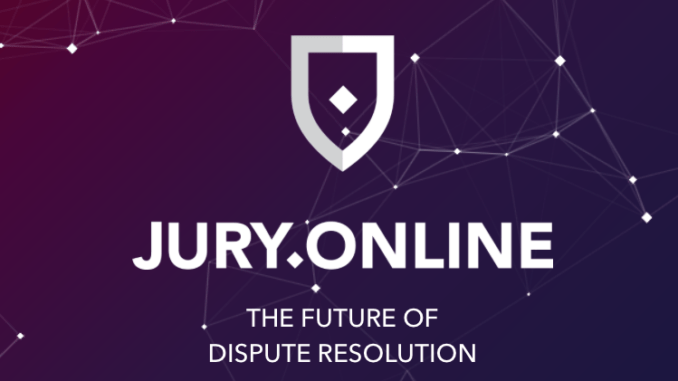
New smart contract start-up, Jury.Online, is to create a system for crowd-sourced justice using members of the public to act as an ‘online jury’, or lay arbitration panel, to rule on contractual disputes.
The system will be ‘lawyerless’, though it appears that lawyers can put themselves forward to be on the panel of jurors if they wish to. That said, the proposed system of Jury.Online is that ‘everyone can apply to become an arbiter’, as the company puts it.
This raises several interesting legal issues, and perhaps most importantly: is a ruling by a group of anonymous jurors assembled online to rule on the disputed outcome of a smart contract, legally compliant and legally binding?

That said, several law firms are now moving to catch up, though in reality the majority of the legal profession may be unaware that people are creating smart contracts and now resolving commercial disputes without any form of legal input.
While AI seems to be custom-made for the law, given its ability to read text, which is the basis for 90% of legal activity, smart contracts also implicitly connect to the law, as any contract by its nature refers to some form of legal framework. Though, in this case, which legal framework Jury.Online is using is at present unclear.
The company said in its White Paper, ahead of the mandatory ICO for its ‘JOT’ token, that the system would work in the following way:
‘An arbiter is a person who is your Little Helper when it comes to the dispute caused by the result of a deal, but you will never know their name.
If you do not agree with the deal’s outcome, you call arbiters to resolve the case. During the smart contract creation you can choose an option of assigning arbiters to a possible dispute.
You see what is their price, their rating and their experience so you know beforehand how much it will cost in JOT [which is their token that you will have to use to engage the services of the online jurors, or ‘aribters’.]
During the dispute you send evidence, that may contain text statements, photos or videos, and they receive it via our platform.
The arbiters pass their verdict by simple voting, moreover, they do not know which other arbiters are assigned to this case, so they can’t talk with each other to be influenced by others’ opinions.
If you get the majority of the votes and then you will win the case. If you lose, you can appeal to higher level arbiters that have higher ratings and they will pass their verdict but be prepared to pay them their prices as you’re the one who appeals.
If you lose again, the smart contract concludes, but if you win, the counterparty may appeal once again to even higher level of arbiters which will set the last decisive round of appeal.’
And there it is. An entire legal system without lawyers, even with upper and lower levels of dispute resolution. Yet, there are no lawyers explicitly invited to advise on the smart contracts people are placing on blockchain platforms such as Ethereum, and if there is a dispute it is solved by a lay panel of arbiters, which again may include no lawyers at all.
When we talk about legal innovation we often look to law firms to see what they are doing. But, as can be seen here, the reality is that the blockchain market is creating its own legal system. That is an extraordinary evolution.
Or, to quote the author of the White Paper, Estonia-based Alexander Shevtsov:
‘National laws do not yet correspond to the realities of the modern world and existing legal cases have clogged the already overburdened judicial system, which has coincided with a steep rise in the cost of legal services and litigation.’
He goes on to add:
Modern litigation or other kinds of dispute resolution are completely outdated a nd have a number of fundamental disadvantages:
- High price. Professional legal services are extremely expensive, with preliminary consultations alone costing hundreds of dollars, while lawyer’s fees for civil lawsuits can run up to thousands of dollars.
- Duration of proceedings. As a rule, it takes several court sessions at intervals of 1-2 months to solve a case. That, of course, is too long for most disputes.
- Judgement execution. Even if a judgement is delivered, its execution takes time and is carried out by third parties. The losing party may abscond, declare bankruptcy or otherwise avoid fulfilling its obligations.
The answer to these problems, according to Shevtsov, naturally, is Jury.Online. Will this take off? Perhaps not among large companies that have inhouse legal teams and are automatically focused on hiring external lawyers. But, among the growing world of new SMEs and individuals who run businesses 100% online, and in some cases wholly via blockchain platforms, this may be exactly what they’re looking for. Interesting times.
2 Trackbacks / Pingbacks
Comments are closed.